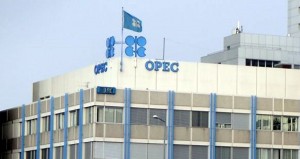 TEHRAN Jan 12(Shana)--Venezuelan President Nicolas Maduro travelled to Tehran as part of his diplomatic efforts to curb falling oil prices. The price of black gold has fallen to below $50 in recent days.
TEHRAN Jan 12(Shana)--Venezuelan President Nicolas Maduro travelled to Tehran as part of his diplomatic efforts to curb falling oil prices. The price of black gold has fallen to below $50 in recent days.Venezuela was the first OPEC member state that embarked on a charm offensive to keep oil prices from sliding when they dropped to below $100 last June. Caracas first called for an emergency ministerial meeting of the Organization of the Petroleum Exporting Countries to discuss the prices. However, OPEC hawk�s attempt was thwarted by the oil producer body�s dove. Saudi Arabia and other Arab states of the Persian Gulf declared openly that they would not agree to an emergency meeting to cut production and shore up prices. They believed that OPEC has no longer a final say on production.�That was the end of the first attempt by the Venezuelan government in favor of oil prices.
But Venezuela, whose economy is close to bankruptcy, did not relent. After its call for an emergency meeting went unheeded and oil prices kept falling, Venezuela moved to host a crucial and low-profile meeting ahead of OPEC�s ministerial meeting. One day before the routine meeting of OPEC, Venezuela and Mexico � both leading Latin American oil exporters � along with OPEC�s kingpin Saudi Arabia non-OPEC oil producer Russia gathered in Vienna to discuss how to stabilize oil prices.
But this meeting also ended inconclusively, registering a second defeat for Venezuela in its efforts to stabilize prices. Russia and Saudi Arabia failed to reach agreement on the roles OPEC and non-OPEC could play with regard to oil market. This disagreement just one day before OPEC�s ministerial meeting struck a serious blow to intentions for curbing oil price fall.
A third blow to Venezuela�s efforts occurred when OPEC ministers decided to keep production ceiling unchanged.
The downward trend of oil prices has once again prompted Maduro, who succeeded Hugo Chavez after his death, to look for another solution to oil price instability which is eating away at the very pillars of the economy of the Latin American country.
Sharp fall in oil prices has created two major problems for Venezuela. First is that Caracas is seeing its hard currency revenues cut sharply, pushing its economy closer to bankruptcy. Second is that Venezuela hits snags in developing its vast oil fields which produce extra-heavy oil. Development of extra-heavy oil fields costs much higher than other reservoirs. To that effect, oil price cut could put a brake on field development projects by Venezuela, a founding member of OPEC, before sidelining non-OPEC producers.
Before travelling to Tehran, Maduro visited China and he apparently won Beijing�s accord for extending the deadline for Caracas to pay back its $50 billion debt.
With regards to Maduro�s talks with President Hassan Rouhani of Iran, one should keep in mind that this meeting could have set the stage for the start of talks for OPEC restructuring. More than five decades since its establishment, OPEC is proving ineffective. It would be normal for Iranian and Venezuelan presidents to envisage measures for a restructuring of this oil producing body.
Why would Venezuela remain an OPEC member state if the body�s decisions were to damage its economy? For one year, OPEC has been dealing with structural problems. OPEC has failed to pick a secretary-general and it has had to renew the term of its longtime secretary general due to lack of consensus.
Throughout its 55-year history, OPEC has held only three summits � first in 1975 in Algeria, second in 2000 in Venezuela and third in 2008 in Saudi Arabia.
They were only two examples of lack of coordination within OPEC. Some analysts believe that the recent decision by OPEC to keep production ceiling unchanged might have been an action by some members against others.
Now if we compare OPEC with the European Union (both were established almost at the same time), we will better understand to what extent OPEC has been inactive in serving the interests of its member states.
The EU was established only two years before OPEC in 1958 and it started work with six countries. The primary objective of the European bloc was economy. It aimed to reduce tariffs among member states in order to fix an economy battered by World War II. The EU was initially known as the European Economic Community (EEC). Today, it has 28 member states and the economies of the European bloc have improved significantly.
The EU is also facing challenges, but it is much more dynamic than OPEC in terms of cooperation among its member states.
It is time for OPEC to restructure itself and boost its efficiency in safeguarding the interests of its member states. Without restructuring, OPEC had better reduce its role to a body like the International Energy Agency or the US Energy Information Administration to release data.
Oil price decline and Maduro�s Tehran visit have provided a chance for two founding members of OPEC to declare their intention for a restructuring of OPEC.
By SHANA
The Iran Project is not responsible for the content of quoted articles.










